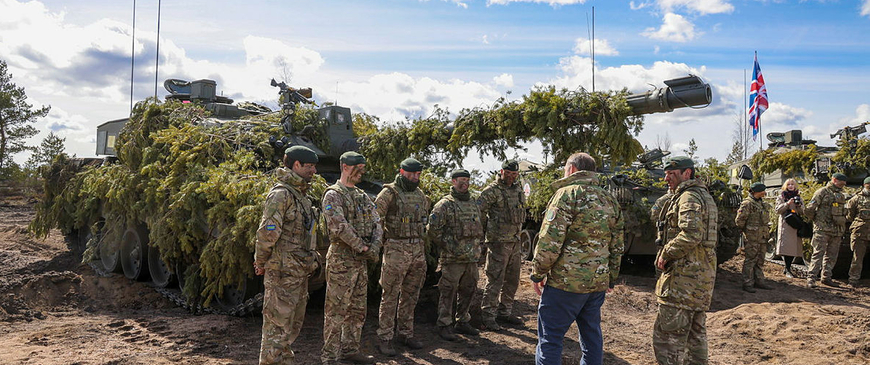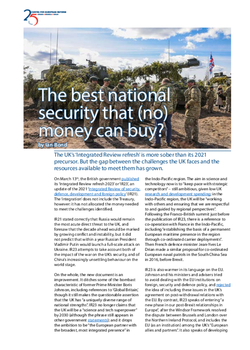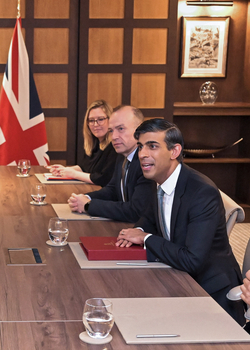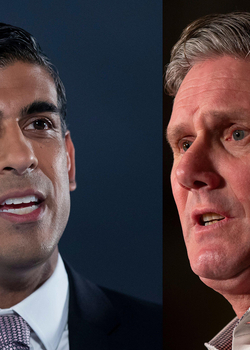
The best national security that (no) money can buy?
The UK’s ‘Integrated Review refresh’ is more sober than its 2021 precursor. But the gap between the challenges the UK faces and the resources available to meet them has grown.
On March 13th, the British government published its ‘Integrated Review refresh 2023’ or ‘IR23’, an update of the 2021 ‘Integrated Review of security, defence, development and foreign policy’ (IR21). The ‘integration’ does not include the Treasury, however: it has not allocated the money needed to meet the challenges identified.
IR21 stated correctly that Russia would remain the most acute direct threat to the UK, and foresaw that the decade ahead would be marked by growing conflict and instability, but it did not predict that within a year Russian President Vladimir Putin would launch a full-scale attack on Ukraine. IR23 attempts to take account both of the impact of the war on the UK’s security, and of China’s increasingly unsettling behaviour on the world stage.
IR21 stated correctly that Russia would remain the most acute direct threat to the UK, and foresaw that the decade ahead would be marked by growing conflict and instability.
On the whole, the new document is an improvement. It ditches some of the bombast characteristic of former Prime Minister Boris Johnson, including references to ‘Global Britain’, though it still makes the questionable assertion that the UK has “a uniquely diverse range of national strengths”. IR23 no longer claims that the UK will be a “science and tech superpower” by 2030 (although the phrase still appears in other government statements); and it drops the ambition to be “the European partner with the broadest, most integrated presence” in the Indo-Pacific region. The aim in science and technology now is to “keep pace with strategic competitors” – still ambitious, given low UK research and development spending; in the Indo-Pacific region, the UK will be “working with others and ensuring that we are respectful to and guided by regional perspectives”. Following the Franco-British summit just before the publication of IR23, there is a reference to co-operation with France in the Indo-Pacific, including “establishing the basis of a permanent European maritime presence in the region through co-ordinated carrier deployments”. Then French defence minister Jean-Yves Le Drian made a similar proposal for co-ordinated European naval patrols in the South China Sea in 2016, before Brexit.
IR23 is also warmer in its language on the EU. Johnson and his ministers and advisers tried to avoid dealing with the EU institutions on foreign, security and defence policy, and rejected the idea of including these issues in the UK’s agreement on post-withdrawal relations with the EU. By contrast, IR23 speaks of entering “a new phase in our post-Brexit relationships in Europe”, after the Windsor Framework resolved the dispute between Brussels and London over the Northern Ireland Protocol, and includes the EU (as an institution) among the UK’s “European allies and partners”. It also speaks of developing “new forms of co-operation on issues of shared interest” with the EU, including on defence.
IR23 speaks of entering “a new phase in our post-Brexit relationships in Europe”, after the Windsor Framework resolved the dispute between Brussels and London over the Northern Ireland Protocol.
The improving relationship with the EU was reflected in the process leading to IR23: there were informal discussions with the European External Action Service – the EU's diplomatic service – as well as those, referred to in the document itself, with "nations of NATO and the Joint Expeditionary Force (JEF); [and] other key European partners including France, Germany, Poland and Italy”.
IR23’s assessment of the challenges to the UK is sober. It gives centre stage to the threat from Russia, and the objective in responding to it is admirably firm: “to contain and challenge Russia’s ability and intent to disrupt the security of the UK, the Euro-Atlantic and the wider international order”.
In relation to China, described as “an epoch-defining and systemic challenge”, the policy will be to protect the UK against threats from China; to deepen co-operation with like-minded countries, recognising that “we have limited agency to influence the CCP’s [Chinese Communist Party] actions on our own”; but also to engage with China where that is consistent with UK interests. IR23 explicitly disavows the division of the world into “democracy versus autocracy” – a contrast with the US National Security Strategy of 2022, which describes democracies and autocracies as “engaged in a contest to show which system of governance can best deliver for their people and the world”.
The document also covers state and non-state threats below the threshold for armed conflict, including from information operations and cyber attacks; threats to supply chains and access to strategic technologies; and threats from organised crime, terrorism and corruption, as well as – inevitably in the current political climate – from illegal migration.
But despite the generally sensible enumeration of threats, there is a hole at the heart of IR23: there is little new money on offer to meet the challenges. Defence gets the best deal, but even that falls far short of what Defence secretary Ben Wallace was looking for in September 2022. Back then, he told The Telegraph that then Prime Minister Liz Truss planned to increase the defence budget to 3 per cent of GDP, so that it would reach about £100 billion by 2030.
IR21 said that defence spending stood at 2.2 per cent of GDP; IR23 says that it is “expected to reach 2.2 per cent of GDP” in 2023 (with an extra 0.09 per cent for assistance to Ukraine). There is an “aspiration” to reach 2.5 per cent, but no timeline for getting there – and no mention at all of 3 per cent. The defence budget will increase by £5 billion over the next two years – more than half of that going to modernise the UK’s nuclear deterrent – and roughly £2 billion per year in each of the following three years, subject to the agreement of the next government. Wallace told the House of Commons Defence Committee in November 2022 that he needed about £8 billion over two years simply to protect the defence budget against inflation and the pound’s relative weakness against the dollar when the UK is making major equipment purchases from the US.
The defence budget will increase by £5 billion over the next two years, more than half of that going to modernise the UK’s nuclear deterrent.
Other parts of the UK’s international effort do even worse: apart from a doubling of funding to develop expertise on China, there is no explicit increase for diplomacy, although a new UK Integrated Security Fund, worth £1 billion, will be created by merging the existing Conflict, Stability and Security Fund (worth £890 million in 2022-2023) with other, smaller funds to pay for conflict prevention and other security-related projects. The overseas development assistance budget, cut from 0.7 per cent of gross national income to 0.55 per cent, has been reduced further, in effect, because about one-third of it is now being spent by the Home Office to accommodate asylum seekers in the UK. The BBC World Service will get an extra £20 million over two years, “protecting all 42 World Service language services” – but that will not compensate for the £28.5 million annual savings that the World Service announced last September that it would have to make.
Johnson may no longer be prime minister, but his philosophy of having his cake and eating it is still present in IR23. The UK cannot achieve everything it aspires to in the review with such constrained resources, and least of all if it tries to do too much on its own rather than in partnership with other powers, including the EU. The government faces a painful choice: it can either keep spending at the current level, and see its hard power questioned and its soft power eroding; or it can invest enough to be taken seriously on the world stage. Neither allies nor adversaries will be impressed, however, by a strategy that is ‘all mouth and no trousers’ – or at best, uncomfortably tight trousers.
Ian Bond is director of foreign policy at the Centre for European Reform.



